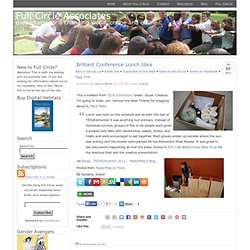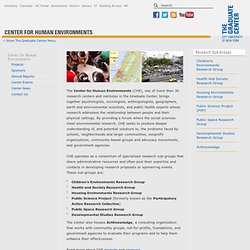

Sharing the Joy of Nature & Flow Learning DVD - Inner Path. SAGE. Eco-Schools. Welcome to Seattle Tilth! — Seattle Tilth. The Nature and Purpose of Education - Maurice Holt. Ecoliteracy.org The Nature and Purpose of Education In her celebrated The Classic Italian Cookbook, Marcella Hazan wrote: "What people do with food is an act that reveals how they construe the world. " At the time — 30 years ago — it was a sentiment that needed a word of explanation; the Japanese meal respects aesthetics, the French cuisine respects subtlety, Italian food respects its ingredients. We now take what we eat much more seriously, and it is timely to ask: What does a school lunch of reheated burger and chips have to say about how we construe the world? For that matter, what does it say about how we construe the nature and purpose of education?
Pausing to ponder the nature and consequences of a burger bar in the center of Rome was how a major eating revolution began. The concept of Slow, as it has emerged from the Slow Food movement, derives its power as a metaphor from its moral force. What matters in fast food is not the process of preparing or educating, but the outcome. Smart by Nature: Schooling for Sustainability. Ecoliteracy.org Smart by Nature: Schooling for Sustainability By Michael K. Stone/Center for Ecoliteracy Foreword by Daniel Goleman, author of Ecological IntelligencePublished by Watershed MediaSmart by Nature: Schooling for Sustainability portrays the growing sustainability movement in K-12 education, showcasing inspiring stories of public, independent, and charter schools across the country.
This 216-page book describes strategies for greening the campus and the curriculum, conducting environmental audits, rethinking school food, and transforming schools into models of sustainable community.Available at:Amazon.com Barnes & NobleUniversity of California PressAcorn Naturalists Winner of the 2010 Green Prize for Sustainable Literature You are here Home / Publications / Books Tools Print Share / Email Related Content. Ethical Food in Schools. The GMO Film Project « Edible Aria.
National Geographic Magazine - NGM.com. Brilliant Conference Lunch Idea. Jul 01 2011 Add to del.icio.us • Email this • Subscribe to this feed • Save to del.icio.us • Share on Facebook • Digg This!

This is brilliant from TEDX Edmonton. Green. Social. Creative. Lunch was next on the schedule and as with the rest of TEDxEdmonton it was anything but ordinary. Via Recap: TEDxEdmonton 2011 – MasterMaq’s Blog. Photos from MasterMaq on Flickr. Be Sociable, Share! Like this: Like Loading... Video channel on TED.com. School Yard. View /ruthhoward/kitchen-garden. Home - Stephanie Alexander Kitchen Garden Foundation - The Stephanie Alexander Kitchen Garden Foundation Is An. Common Ground. Home - WellSpring Community School. Recycling. Home + New Roots School. Home - river's edge academy. The Chewonki Foundation. Welcome. Children's Environments Research Group (CERG)
The Center for Human Environments (CHE), one of more than 30 research centers and institutes in the Graduate Center, brings together psychologists, sociologists, anthropologists, geographers, earth and environmental scientists, and public health experts whose research addresses the relationship between people and their physical settings.

By providing a forum where the social sciences meet environmental research, CHE seeks to produce deeper understanding of, and potential solutions to, the problems faced by schools, neighborhoods and larger communities, nonprofit organizations, community-based groups and advocacy movements, and government agencies. CHE operates as a consortium of specialized research sub-groups that share administrative resources and often pool their expertise and contacts in developing research proposals or sponsoring events.
These sub-groups are: Read more about CHE projects and sponsors... Maine Farm Enterprise School.